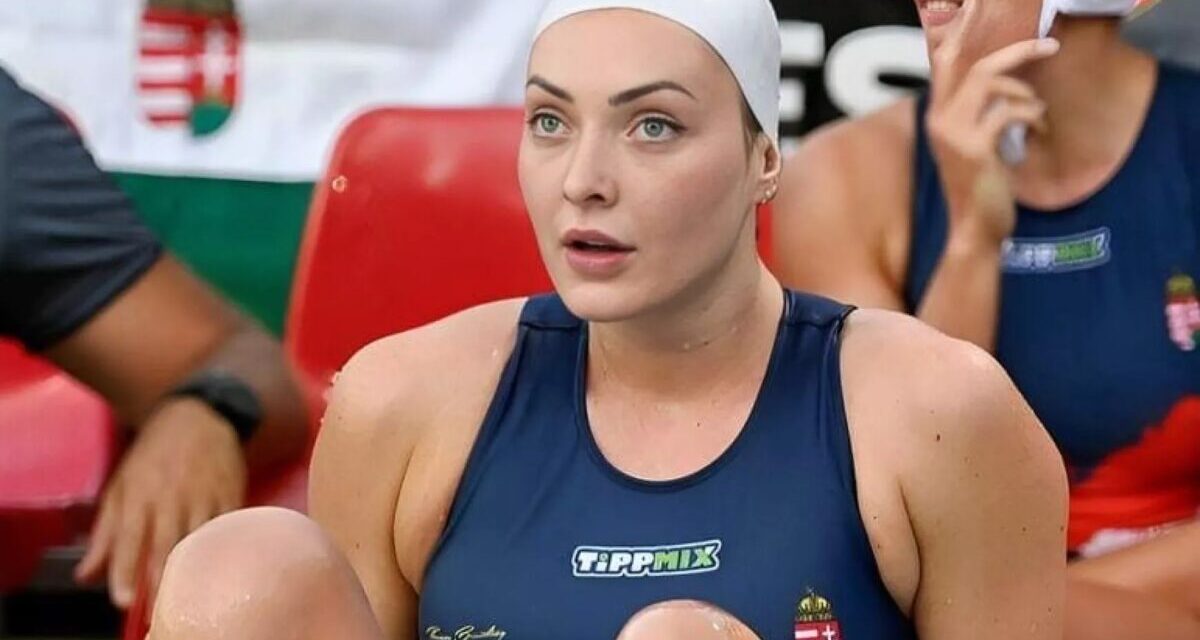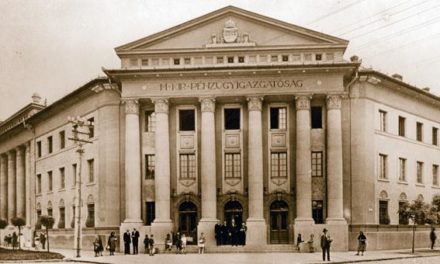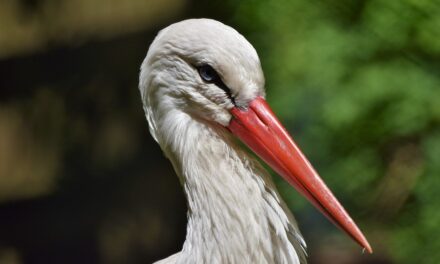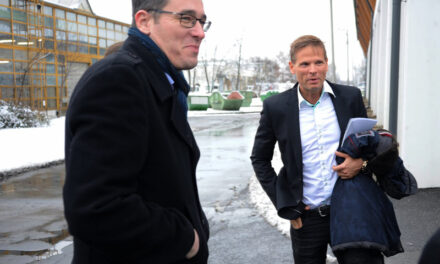After the World Championship in Pest, I started to feel that the Hungarian people accepted me completely and that I was already a Hungarian girl for them. Interview with Natasa Rybanská, the excellence of the Hungarian women's water polo team.
Natasa Rybanská was able to play in two World Championship finals and won an Olympic medal, starting from Pöstyén. After moving to Hungary, he acquired Hungarian citizenship and learned Hungarian perfectly. He was hampered by several injuries in the past period, but the 23-year-old talent did not give up and performed his best tournament so far at the World Championships in Doha in January. We talked to the excellence of the Hungarian women's water polo team, Natasa Rybanská.
You've been through a fantastic World Cup with the women's water polo team. The gold at the world championship depended on a hair's breadth, but the bottom line, the Olympic quota, was there. How would you rate the World Cup in Doha?
This World Cup and the preparation was one of the happiest periods of my life. We definitely went to the World Cup for the quota. I don't think anyone expected this result from us, seeing the results we have achieved in the last year and a half, so I am very happy and very proud of this silver medal.
I saw that you played with great enthusiasm at the World Cup, maybe I'm not exaggerating when I say that it was your best tournament so far, since the goals also came? How did you see your performance?
However, the goals were missing in the important matches, despite that, I do think that it was my best World Cup so far. This is primarily due to the fact that I have cultivated a much closer relationship with God, I am simply at peace of mind like never before. Secondly, it is also thanks to the two new coaches and the team, the expectations of me are different, and I feel much more trust from them. There is still room for improvement, but these listed circumstances give enormous impetus and motivation.
You also had a serious shoulder injury last year, how difficult was this period for you?
I also had two serious shoulder injuries, I injured my left shoulder at the World Championships in Budapest and had to have surgery. I went through a very difficult recovery period. After that, at the World Championships in Fukuoka, the problem started with my right shoulder, and then I got injured, so what happened to my left shoulder before now happened to my right shoulder. It affected me very badly, I felt that I could not climb out of the pit.
It was very difficult to process, but I am grateful to God that I was given a new opportunity in life. However, because of this, I also feel the responsibility, if I have already been given this second chance, then I should take advantage of it and use it properly.
I owe a lot to Ildiko Moldvai and Marci Fridvalszki, as they did a lot for my successful recovery, as well as to Attila Mihók and Sándor Cseh, who took the risk of calling me into the squad when I was injured. They supported me, were patient with me and gave me a chance to prove myself. This is incredible for me, it's really a great honor and I'm very grateful to them, as well as to my club, which stood by me throughout the difficult period.
You represented Hungary for the first time at the 2019 World Championships in Gwangju. It has been a long and bumpy road to this point, with hard work. How do you remember your first match in Hungarian colors?
I really remember the whole match, the circumstances, everything. I also remember how excited I was because when I looked around, I saw players around me who were my role models. I will never forget how honored I felt to be there with them. I was proud to be able to listen to the Hungarian national anthem before the match.
In 2016, you moved to Hungary from Pöstyén, Slovakia. During this period, you managed to learn Hungarian perfectly. How much of a challenge was learning Hungarian for you?
It was difficult, my Hungarian language skills are still not perfect and I am constantly trying to learn. When I started, there was a lot of crying, but I am lucky in that in Szentes I had little choice but to study Hungarian.
My best friend didn't speak English very well, and I didn't know Hungarian very well, so I had to learn so that we could talk. The fact that there was a person who was very close to me and I wanted to talk to him was an important motivation.
I played in Hungarian colors for the first time in 2019, and then I already spoke Hungarian with the team. I always asked the girls to communicate in Hungarian so that I could learn the language as soon as possible.
As a Slovak girl, how difficult was it to integrate into everyday life in Hungary? Nowadays you are more and more popular, I think more and more people stop you on the street. How do you handle the love of Hungarians?
After the World Championship in Pest, I started to feel that the Hungarian people accepted me completely and that I was already a Hungarian girl for them. I am trying to comply, because it is really a great honor for me to be able to represent the Hungarian colors and I am trying to do everything to make them see that it was a good decision to bring me here to Hungary.
The entire interview can be read on M7.sk!
Featured image: ma7.sk












